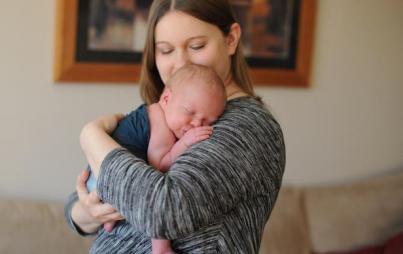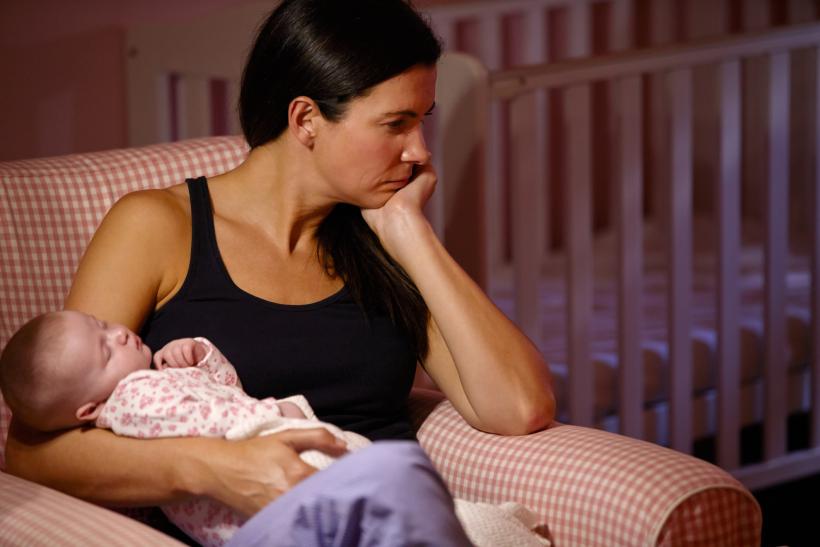
A mother's moment of joy, overshadowed by national tragedy. (Image Credit: Think Stock)
Like many mothers, I will never forget the overwhelming feelings of the first days of motherhood. As I lay awake with my infant at night, I wondered about all the good and bad that this baby would encounter in the world, everything that she would experience and all that I would not protect her from.
I could barely handle the emotional aftermath of a routine, full-term delivery, so I cannot imagine the stress of having a baby amid one of the most significant and scary events in modern history: The September 11th attacks. Yet that’s exactly what happened to Courtney Parizo.
“People ask, 'Where were you when the world stopped turning?' But my kid’s world had just begun,” she said.
Courtney’s second daughter, Amelia, was born at 5:11 a.m. on September 11, 2001. The baby was nearly a month early, but Courtney recovered from the surprise and was eager to introduce the baby to her 14-month-old toddler. Her husband left to get their older child, but when he returned, instead of the joyous meeting of a new family, he brought devastating news.
“When he came back, he came running in the room saying, ‘Turn on TV,'” Courtney recalled. “Right when he turned it on, we saw the second plane hit.”
From that second on, the joy of welcoming a new baby was overshadowed by grief, confusion, and fear.
“It was so stressful,” she said. “It was traumatic.”
Courtney was overwhelmed by the news, but also concerned about her premature infant. The baby was having some trouble breathing, and could not latch, but Courtney could not get the hospital staff to pay attention to the tiny patient, rather than the news on television.
"You're hormonal anyway, and thinking about the children, but now I'm thinking, 'We're going to war.' What does this mean for my kids? How long will this go on?"
“The whole atmosphere of the hospital changed. Everyone zoned in to the TV,” she said. “It was frustrating.”
The pediatrician who had been called to examine the baby had a daughter who was flying from California to the east coast that day, so he was extremely preoccupied.
“He was so concerned with the TV, I couldn’t get [the baby] to latch and couldn’t get anyone to help me. I felt like no one was paying attention.”
In part due to that rocky beginning, Courtney was never able to breastfeed Amelia.
The family had few visitors in the hospital, and much of the extended family was preoccupied with the aftermath of the attacks, including the immediate deployment of Courtney’s brother-in-law, who was a Marine at the time.
“This time that is supposed to be all about the baby, wasn’t.”
The effects of September 11th continued when Courtney brought Amelia home from the hospital, trying to adjust to life with a newborn and toddler in a post-9/11 world.
“When I went home, the postpartum was horrible,” she said. “I was an emotional wreck. It really had an impact on everything.”
Courtney did not leave either of her daughters, and was convinced that a terrorist attack would strike the small New Hampshire town where they lived. She endlessly watched news coverage from New York and Washington, and when the United States invaded Afghanistan on October 7, she became even more concerned.
“It was so much uncertainty. You’re hormonal anyway and thinking about the future of the children, but now I’m thinking, 'We’re going to war.' What does this mean for my kids? How long will this go on?” She paused, looking at her now-teenaged daughters. “It’s still going on.”
In November of that first year, Courtney traveled with Amelia to New York City to help her husband’s cousin move out of Manhattan. During the trip, they went to Ground Zero, where first responders were still sorting through rubble. Courtney was struck by the blackened flags, "Missing" posters, and the horrific smell.
“I remember taking pictures of Amelia, the one good thing that happened that day,” she said.
Even fifteen years later, Courtney has a deep connection to the events of September 11th.
“Having a kid really made me have a different connection to [that day],” she said. “Listening to people who lost people that day, and I gained somebody that day. Their lives were changed in a negative way, while mine was changed in a positive way. I felt guilty. I was celebrating, but it was almost like I wasn’t supposed to be celebrating.”
She encountered that feeling again, on Amelia’s first birthday. When she picked up balloons for Amelia’s party, a woman scolded her in the parking lot for celebrating on that day.
“Still when you say her birthday, it’s like a stigma is attached to it. Every time I say her birthday, people say, ‘Oh, what a bad day.’”
However, over time, September 11th has become more about her daughter’s birthday than the terrorist attacks, despite the fact that Courtney said that she thinks about 9/11 more than most Americans.
“[The attacks] I think about all the time, not only on Patriot Day,” she said. “It had such a big impact on my emotional state, but I feel like her birthday is just her birthday for me.”


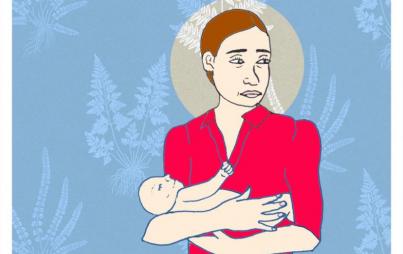
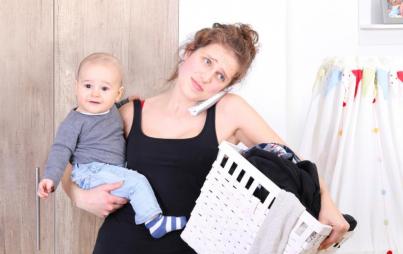
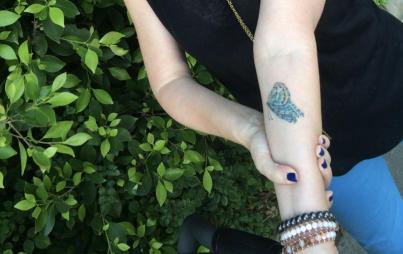

![By Ricky Wilson [CC BY-SA 4.0 (https://creativecommons.org/licenses/by-sa/4.0)], via Wikimedia Commons By Ricky Wilson [CC BY-SA 4.0 (https://creativecommons.org/licenses/by-sa/4.0)], via Wikimedia Commons](/sites/default/files/styles/profile/public/images/article/2019-06/2048px-Catherine_Elizabeth_Middleton_%2528colorized%2529.jpg?itok=0NHwx53l)
